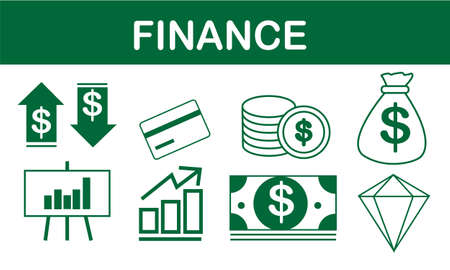Understanding Your Retirement Budget in the UK
For early retirees in the UK, a clear grasp of your retirement budget is fundamental to reducing expenses and downsizing effectively. The cost of living varies significantly across regions, making it essential to assess both your current outgoings and projected expenses as you transition into retirement. Begin by listing all regular expenditures, including council tax—a mandatory local government charge that can differ widely depending on your property’s valuation band and location. Utility bills such as electricity, gas, and water are also core components of your monthly budget, with costs fluctuating between urban and rural settings or based on energy tariffs and usage patterns. Don’t overlook other regional considerations like TV licence fees, home insurance rates, and transportation costs, which may shift if you move to a different part of the country or change your lifestyle habits. By thoroughly understanding these factors within a UK context, you will be well positioned to make informed decisions about where you might cut costs or downsize, setting a solid foundation for financial security throughout your retirement years.
Optimising Housing and Living Arrangements
One of the most significant ways early retirees in the UK can reduce expenses is by re-evaluating their current housing situation. For many, the family home may be larger than necessary once children have moved out, leading to unnecessary maintenance, council tax, and utility costs. Downsizing—moving to a smaller property or even relocating to a more affordable region—can free up both capital and cash flow.
Downsizing Options
The UK offers a range of downsizing possibilities, each with its pros and cons. Moving from a detached house in the South East to a flat in the North can dramatically cut costs, but it’s essential to factor in lifestyle preferences and local amenities. The table below outlines some common options:
| Option | Potential Savings | Considerations |
|---|---|---|
| Moving to a smaller property (e.g., 4-bed to 2-bed) | Lower council tax, reduced energy bills, potential equity release | May need to downsize possessions; less space for guests/family |
| Relocating to more affordable areas (e.g., South West or North) | Lower property prices, cheaper cost of living | Distance from friends/family; availability of healthcare/services |
| Selling and renting instead of owning | No maintenance costs or Stamp Duty on future moves | Lack of long-term security; rent subject to increases |
Understanding Stamp Duty and Associated Costs
When considering a move, it is vital for early retirees to understand the impact of Stamp Duty Land Tax (SDLT) and other transaction-related expenses. SDLT thresholds vary across England, Wales, Scotland, and Northern Ireland, so careful calculation is necessary:
| Nation/Region | Stamp Duty Threshold (as of 2024) | Notes |
|---|---|---|
| England & Northern Ireland | £250,000 (main residence) | Higher rates apply above threshold; first-time buyer relief available up to £425,000 |
| Scotland (LBTT) | £145,000 | Differently structured bands; reliefs for first-time buyers |
| Wales (LTT) | £225,000 | Slightly lower rates overall; different banding system from England/NI |
Additional Costs: Besides SDLT/LBTT/LTT, consider estate agent fees (typically 1-3% + VAT), conveyancing (£800–£1,500), removals (£400–£1,200), and possible renovation or adaptation costs for your new home.
Engineering Your Move: Key Steps for Early Retirees
If you’re planning to optimise your living arrangements as part of your expense-reduction strategy:
- Analyse your current and future needs—space requirements change after retirement.
- Research areas with good transport links, NHS access, and community facilities.
- Create a detailed budget including all moving costs and taxes.
- If releasing equity through downsizing, plan how this will support your long-term retirement income.
This methodical approach ensures that housing transitions not only reduce ongoing costs but also enhance quality of life during early retirement in the UK.

3. Managing Day-to-Day Living Costs
For early retirees in the UK, keeping everyday living costs under control is essential for long-term financial security. Fortunately, there are a range of UK-specific cost-saving measures that can make a meaningful difference to your budget without compromising your quality of life.
Smart Shopping for Food and Essentials
Start with your grocery bill—one of the most flexible areas for savings. Take advantage of supermarket loyalty schemes such as Tesco Clubcard or Sainsbury’s Nectar, which offer discounts and special offers. Consider shopping at discount supermarkets like Aldi or Lidl, where quality staples often come at lower prices. Planning meals ahead and using apps to track supermarket deals can further reduce unnecessary spending. For those willing to experiment, local markets sometimes have bargains on fresh produce towards the end of trading hours.
Transport: Railcards, Bus Passes, and More
Public transport in the UK offers a host of concessions for retirees and those over 60. The Senior Railcard, available to anyone aged 60 or over, provides a third off most rail fares across Britain for a modest annual fee—a worthwhile investment if you travel by train even a few times a year. Many local councils also offer free or discounted bus passes for older residents, which can significantly cut down on day-to-day travel costs within towns and cities. If you rely on taxis or ride-sharing, consider booking in advance or sharing journeys with friends to split fares.
Tackling Everyday Expenses
Reviewing recurring bills is another effective way to keep outgoings in check. Switching energy providers through comparison sites like Uswitch can lead to notable annual savings. Similarly, reviewing broadband and mobile contracts ensures you’re not overpaying for outdated packages—providers often have special deals for new customers that you may be eligible for when your contract ends. Don’t forget council tax reductions; depending on your circumstances (such as living alone), you might qualify for a single person discount.
A Practical Approach
The key to managing daily expenses is regular review and a willingness to adapt. By making use of UK-specific schemes and being proactive about seeking out discounts, early retirees can enjoy their newfound freedom while maintaining financial peace of mind.
4. Healthcare and Insurance Savings
For early retirees in the UK, managing healthcare expenses is both a necessity and an opportunity for significant savings. The NHS provides comprehensive medical cover, but understanding its scope—and where it falls short—can help you minimise out-of-pocket costs while ensuring robust health protection.
Navigating the NHS System
The National Health Service (NHS) covers a wide range of services free at the point of use, including GP visits, hospital care, and emergency treatment. Early retirees should register with a local GP practice as soon as possible. Familiarise yourself with local walk-in centres and NHS 111 for non-emergency advice. For routine prescriptions, consider purchasing an NHS Prescription Prepayment Certificate (PPC), which can dramatically reduce annual medication costs if you require regular prescriptions.
Typical NHS Costs Comparison
| Service | NHS Cost | Private Cost (approx.) |
|---|---|---|
| GP Consultation | Free | £50–£100 per visit |
| Prescription (per item) | £9.65 (England) | Varies (£15–£30+) |
| Dental Check-up | £25.80 (Band 1) | £40–£80+ |
| Eye Test | £20–£25 (private opticians) | Same as private; some NHS eligibility for free tests |
Dentistry: Maximising Value on Dental Care
NHS dental care is subsidised but not always easy to access due to high demand. Regular check-ups under Band 1 are cost-effective, but waiting lists can be long in some areas. If you anticipate frequent treatments, consider an NHS Low Income Scheme or dental payment plans from reputable providers to spread out costs. Evaluate whether private dental insurance offers value for your specific needs—sometimes it’s cheaper to pay as you go, especially if you have good oral health.
Private Medical Insurance: Is It Worth It?
While the NHS covers most essentials, private medical insurance can provide faster access to specialists and elective procedures. However, premiums can be expensive, particularly as you age. For early retirees, consider these strategies:
- Selective Cover: Opt for policies that exclude outpatient care or only cover major treatments to keep premiums lower.
- No-Claims Discounts: Some insurers offer discounts for claim-free years—worth investigating if you’re generally healthy.
- Group Schemes: If you’re part of a professional association or alumni group, check for discounted group health insurance rates.
- Annual Review: Shop around each year using comparison tools like MoneySuperMarket or ComparetheMarket; loyalty rarely pays in this sector.
Savings Summary Table: Healthcare Options for Early Retirees
| Option | Main Benefit | Savings Potential (£/year) |
|---|---|---|
| NHS PPC (Prescription Prepayment Certificate) | Capped prescription costs for regular medication users | Up to £100–£150+ |
| NHS Dentistry + Payment Plan/Insurance Combo | Smoother cash flow and potential coverage for complex treatments | Varies (£50–£300+) |
| Selective Private Health Cover + No-Claims Bonus | Avoids paying full price for all-inclusive policies; rewards healthy years | £200–£500+ |
This structured approach ensures early retirees maintain comprehensive healthcare coverage while strategically cutting unnecessary spend—a core pillar of sustainable UK retirement planning.
5. Utilising Government Schemes and Benefits
For early retirees in the UK, making the most of available government schemes and benefits can significantly strengthen your financial position. Rather than leaving these resources untapped, its worthwhile to methodically identify and apply for the assistance designed for your circumstances. Here, we’ll focus on several key UK-specific benefits that are especially relevant to those seeking to reduce expenses and maintain stability after stepping away from full-time employment.
Pension Credit: Supplementing Retirement Income
Pension Credit is a means-tested benefit aimed at individuals over State Pension age who have a low income. It tops up your weekly income to a minimum threshold set by the government. Many eligible retirees miss out simply because they don’t realise they qualify. Take time to use the official Pension Credit calculator or speak with your local Citizens Advice Bureau—this small effort could result in meaningful monthly support, boosting your financial resilience without impacting other savings or investments.
Winter Fuel Allowance: Managing Energy Costs
Energy bills can be a considerable burden during UK winters, particularly when living on a reduced budget. The Winter Fuel Allowance provides an annual tax-free payment to help with heating costs for people born before a certain qualifying date. The process is relatively straightforward; most will receive it automatically if already drawing a State Pension or certain other benefits, but it’s important to check eligibility criteria each year as rules do change. This allowance can make winter months more comfortable while reducing the stress of fluctuating utility expenses.
Council Tax Reduction: Lowering Household Outgoings
Council Tax represents a significant regular outgoing for many households. Early retirees should investigate whether they qualify for Council Tax Reduction (CTR)—a scheme offered by local councils to support those on low incomes or certain benefits. Each council sets its own criteria, but retired homeowners or renters frequently find that even partial reductions make a noticeable difference over time. Contact your local authority or visit their website for guidance on applying and understanding how savings and pension income might affect entitlement.
Practical Steps for Maximising Benefits
The UK welfare landscape can seem daunting, but taking an engineering approach—systematic research, careful documentation, and regular reviews—can ensure you don’t miss out on valuable support. Make use of tools like benefit calculators, consult reputable advice services such as Age UK or Citizens Advice, and keep records of applications and communications for future reference. By proactively leveraging these government schemes, early retirees can ease the transition into retirement and create a more robust financial safety net.
6. Smart Management of Subscriptions and Utilities
For early retirees in the UK, keeping a close eye on recurring expenses is crucial to maintaining a sustainable budget. Many households are tied into costly contracts for mobile phones, broadband, TV licences, and utilities without realising more cost-effective options may be available. Regularly reviewing these contracts is an essential practice—set a reminder to check renewal dates and price increases at least once a year.
Review and Renegotiate Contracts
Start by listing all your ongoing subscriptions and utility bills. Contact your providers ahead of contract expiry to discuss better rates; many companies offer loyalty discounts or will match competitor prices if you negotiate. This is especially relevant for services like broadband and mobile, where promotional rates often expire after the first year. Don’t be afraid to mention offers from other providers when negotiating—it can encourage your current supplier to improve their deal.
Utilise UK Comparison Sites
Comparison websites such as MoneySuperMarket, Uswitch, and Compare the Market are invaluable tools for UK consumers seeking to cut costs. These platforms allow you to compare prices for energy, broadband, mobile plans, and even insurance products side by side. Enter your postcode and usage details to find the most suitable deals for your household. Switching providers has become much easier due to Ofcom regulations and often comes with cashback or introductory offers.
Make Use of Loyalty Schemes
Many UK companies reward customer loyalty with points schemes or exclusive discounts—think Tesco Clubcard or British Gas Rewards. Take advantage of these programmes where possible but remember not to let loyalty override savings from switching if a better deal is available elsewhere. For TV licences, consider whether you still need a full licence: if you only watch on-demand content that isn’t broadcast live, you might be eligible for exemptions or reductions.
By systematically managing subscriptions and utilities, early retirees can make significant savings without compromising comfort or connectivity. The key is to stay proactive—keep informed about market changes, don’t shy away from negotiation, and always seek out the best value for your needs.

